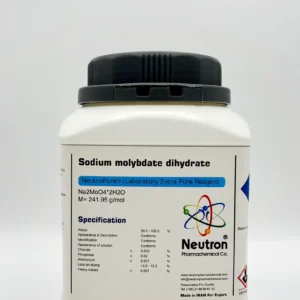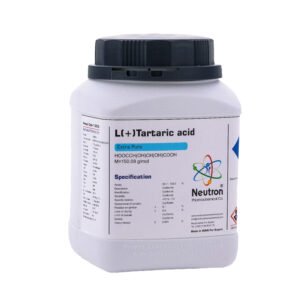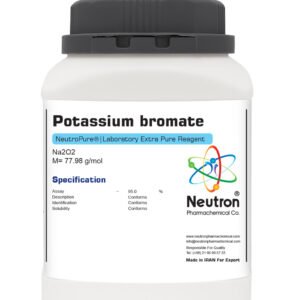زینک سولفات
| Formula | O4SZn |
| Chemical formula | ZnSO4*H2O |
| Density | 3.2 g/cm3 (20°C) |
| Molar mass | 179.45 g/mol |
| Bulk density | ~500 kg/m3 |
| CAS number | 7446-19-7 |
| HS Code | 28332600 |
| EC number | 231-793-3 |
| Storage | Without limitation |
| SDS | available |
| R phrase | R 22-41-50/53 |
| S phrase | S 22-26-39-46-60-61 |
| Odour | odourless |
| Form | Solid |
| Color | white |
| p H | 4.0 – 5.2 (50g/l 20 °C) |
| Solubility in water | 350 g/l (20°C) |
| Assay | 99.0 – 100.5 | % | |
| Description | Conforms | ||
| Identification | Conforms | ||
| Solubility | Conforms | ||
| Acidity | Conforms | ||
| Alkalies &alkaline earths | ≤ | 0.9 | % |
| Heavy metals | ≤ | 0.002 | % |
| Chloride | ≤ | 0.005 | % |
| Loss on drying | ≤ | 1 | % |
Zinc sulfate is a colorless, crystalline solid or white powder that is odorless and soluble in water. It is an inorganic compound commonly used in various industrial, agricultural, and pharmaceutical applications due to its zinc content.
🏭⚗️ Production
Zinc sulfate is typically produced by reacting metallic zinc or zinc oxide with sulfuric acid. The reaction yields zinc sulfate and water, and the resulting solution is usually crystallized to obtain the heptahydrate form, which is the most commonly used variant in commercial applications.
🔬 Properties
Zinc sulfate has the chemical formula ZnSO₄ and a molar mass of approximately 161.47 g/mol for the anhydrous form, and 287.54 g/mol for the heptahydrate (ZnSO₄·7H₂O). It is highly soluble in water but insoluble in ethanol and other organic solvents. The heptahydrate appears as colorless, transparent crystals and has a melting point of around 100 °C, at which it loses its water of hydration. Zinc sulfate acts as a Lewis acid and readily dissociates into zinc and sulfate ions in aqueous solutions.
🧪 Applications
Zinc sulfate is widely used as a micronutrient fertilizer in agriculture to correct zinc deficiencies in soils and crops. In the medical field, it is used as a dietary supplement for treating zinc deficiency in humans and animals. It is also employed in electroplating, water treatment, textile processing, and as a mordant in dyeing. In laboratory settings, it is used in chemical analysis and as a reagent.
⚠️ Safety
Zinc sulfate should be handled with care, as ingestion in large amounts may cause gastrointestinal irritation, including nausea and vomiting. It may also irritate the eyes, skin, and respiratory tract upon contact or inhalation. Prolonged exposure can lead to zinc toxicity, especially in industrial settings. Proper ventilation, use of personal protective equipment, and storage in a dry, well-ventilated area away from incompatible substances such as strong bases are recommended for safe handling.





